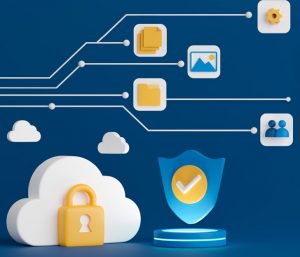 Having a secure computer network is essential for any business. But, it’s easy to overlook certain aspects of your network that need to be addressed right now. In this article, we will discuss five things you need to address right now in your network. These include outdated Windows 7 systems, no firewall, no two-factor authentication or multi-factor authentication, antivirus without EDR and no plan for cyberattacks. It’s important to get rid of and address these items as soon as possible in order to ensure the security of your data and systems.
Having a secure computer network is essential for any business. But, it’s easy to overlook certain aspects of your network that need to be addressed right now. In this article, we will discuss five things you need to address right now in your network. These include outdated Windows 7 systems, no firewall, no two-factor authentication or multi-factor authentication, antivirus without EDR and no plan for cyberattacks. It’s important to get rid of and address these items as soon as possible in order to ensure the security of your data and systems.
In this article, we will discuss what bad things can happen if you keep using Windows 7, legacy operating systems, and other dated technologies and practices.
Legacy Operating Systems
With the introduction of newer and more secure operating systems, it is important for users to understand the risks associated with continuing to use legacy operating systems such as Windows 7 and Server 2008 and 2012. While these operating systems may have been dependable and efficient in the past, they are no longer supported by Microsoft and can be vulnerable to security threats. Continuing to use these systems can lead to data loss, system crashes, and other issues that can have a negative impact on your business. By understanding the risks associated with using legacy operating systems, you can make an informed decision about whether it is worth the risk or if you should upgrade to a newer version of Windows.
Weak Passwords and No Multifactor Authentication
In today’s digital world, having strong passwords and using two-factor authentication (2FA) is the best way to protect your personal and business data from cyber criminals. Without 2FA and proper password management, you are leaving your data vulnerable to attack. Cyber criminals can get into your data and steal or lock down your information, resulting in financial losses and reputational damage. It is essential that you understand the importance of having strong passwords and using 2FA when accessing online services. Doing so will help ensure that your data remains secure from hackers.
No Firewall = Trouble
In today's digital world, having a firewall is essential for businesses to protect their confidential data and their clients' information. Without a firewall, businesses are vulnerable to cyber-attacks that can cost them everything. Cyber-attacks can result in stolen data, financial losses and reputational damage. Having a firewall installed on the business network will help protect the business from these threats by blocking malicious traffic and unauthorized access to the system. Furthermore, it will also provide better security for customers who entrust their personal information with your business or government agency. A firewall is an important part of any business's security infrastructure and should not be overlooked or taken lightly. A good firewall will monitor incoming and outgoing traffic, detect suspicious activities and alert administrators of any potential threats. It can also help protect against viruses, malware and other malicious software that may be used by hackers to gain access to sensitive information.
Traditional Antivirus Software isn’t enough protection
With the evolution of technology, traditional anti-virus software is no longer enough to protect businesses from cyber threats. Endpoint Detection and Response (EDR) software has become a popular choice for businesses as it provides more comprehensive protection. With the rise of cybercrime, it is essential to protect your business from malicious attacks. Antivirus software is not enough to keep your business safe, as it can leave you exposed to various threats. This is why Endpoint Detection and Response (EDR) software can be a powerful tool for businesses. When configured properly by a certified professional at Midwest Computech, EDR can help protect your business from problems such as malware, phishing scams, ransomware and more.
USB Data Backups don’t cut it anymore
Without proper data backup, businesses are at risk of losing everything in the event of a disaster. USB backups are not dependable, and if they get corrupted, there is no way to recover the data. Businesses that still use a USB backup for their data could lose everything if they don't switch to cloud-based solutions. Cloud-based backups offer more security and reliability than traditional USB backups, making them a much safer option for businesses to store their important data.
Every business should have a secure data backup system in place. However, if you are still using USB drives to store data, this could lead to catastrophic results if the drive gets corrupted or lost.


